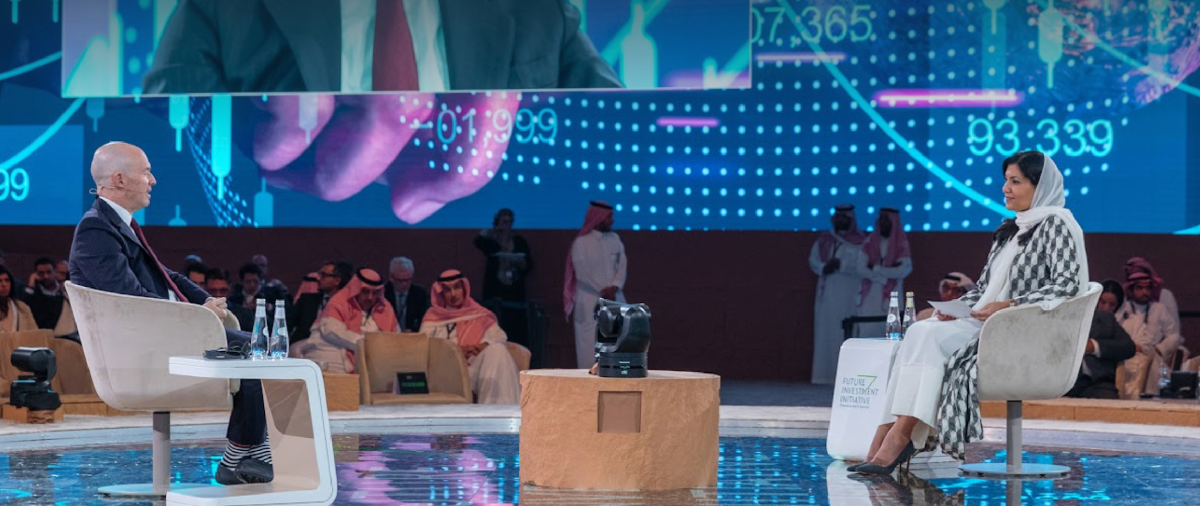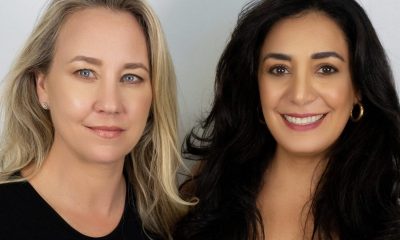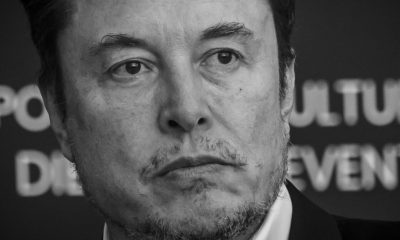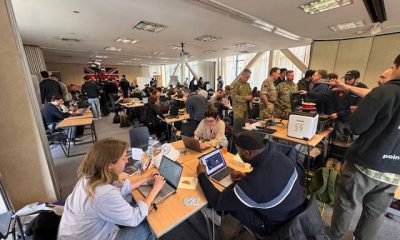Business
Andreessen Horowitz is now openly courting capital from Saudi Arabia, despite U.S. strains

Andreessen Horowitz is now openly courting capital from Saudi Arabia, despite U.S. strains.
According to Bloomberg, Marc Andreessen and Ben Horowitz appeared on stage with WeWork co-founder Adam Neumann to talk for at least the second time since November about their firm’s $350 million investment in Flow, which is Neumann’s new residential real estate company. Their choice of venue was intentional: the conference was organized by a nonprofit backed by one of Saudi Arabia’s largest sovereign funds, and Flow may launch in the Kingdom, says Bloomberg. Meanwhile, the three reportedly laid it on thick, with Horowitz praising Saudi Arabia as a “startup country” and saying that “Saudi has a founder; you don’t call him a founder, you call him his royal highness.”
Said Neumann separately: “It’s leaders like his royal highness that are actually going to lead us where we want to go.”
We reached out to Andreessen Horowitz with related questions this morning and have yet to hear back.
That a firm of Andreessen Horowitz’s size and interests is looking to cement relationships in Saudi Arabia isn’t shocking. Though the 14-year-old outfit has never made public who its limited partners are, no one would grab at their pearls were it revealed that sovereign wealth funds from the region have helped boost the assets under management at the firm to $35 billion across its many funds. Indeed, back in October, Horowitz spoke at the investment conference dubbed “Davos in the Desert,” which is often a clue that someone is fundraising.
As for more explicit associations, in 2016, both Andreessen Horowitz and Founders Fund sold some of their share in the ride-share company Lyft to Saudi Arabia’s Prince al-Waleed bin Talal and his Kingdom Holding. In 2017, Marc Andreessen also joined forces with the prince’s first cousin, Saudi Crown Prince Mohammed bin Salman (“MBS”), agreeing to join the advisory board of MBS’s ambitious project Neom, a group of futuristic tech-driven communities with its own laws across “an area the size of Massachusetts,” as the WSJ has described it.
If Andreessen stepped off that same board in 2018 after the CIA concluded that MBS ordered the gruesome murder of a Washington Post columnist, he didn’t share it. In fairness, neither did some of Neom’s other high-profile advisory board members, including Travis Kalanick or Sam Altman. Only then-Apple-design-chief Jony Ive disappeared from the list nearly as quickly as he was added, with Apple calling his inclusion “a mistake.”
Memorably, not a single U.S. investor or startup founder with business interests tied to Saudi Arabia spoke out against MBS during that prolonged chapter in 2018, even as a Saudi-led military and economic war on Yemen was also garnering headlines for its brutality.
All the while, plenty of very big U.S. businesses have continued to conduct business in the region. KKR and Saudi Arabia’s Public Investment Fund still work together routinely. JPMorgan said it planned to expand its operations in Saudi Arabia late last year. Saudi Arabia’s sovereign wealth fund and BlackRock signed an agreement a few months ago to jointly explore infrastructure projects in the Middle East.
Yet venture firms, which tend to paint themselves as more virtuous than other asset providers in order to win over founders, have mostly remained highly secretive about any ties to the region. Which makes comments made yesterday by Horowitz at the Miami event all the more notable. From Bloomberg’s story:
Onstage at the conference . . . Horowitz lamented that after Andreessen, the co-founder of their eponymous venture capital firm, had written a blog post in 2020 arguing it was “time to build,” it made waves, but not much changed in the U.S. “Probably 50 people in the U.S. government reached out to Marc to talk to him about it, and absolutely nothing happened,” Horowitz said.
But when Horowitz visited Saudi Arabia in October and ate lunch with Saudi Princess Reema bint Bandar Al Saud, and more recently, met with the governor of its sovereign wealth fund, Yasir Al-Rumayyan, they were enthusiastic.
Al-Rumayyan told him, “Let’s go,” and “within a week we had a half dozen really interesting meetings set up,” Horowitz said. “In April, we’re bringing our businesses out to Saudi. And that’s what a startup feels like.”
So what has changed? The American economy for one thing, where U.S. businesses are right now grappling with tighter lending and higher inflation.
In so openly praising its friends in Saudi Arabia, Andreessen Horowitz further appears to be aligning itself with other global investment firms that are unapologetic about their relationship with the oil-rich region. If they can do it, so can we, may be the thinking.
Andreessen Horowitz may also be betting that the U.S. will be forced to reconsider its relationship with Saudi Arabia despite its repressive regime. Consider: After President Joe Biden reluctantly visited MBS last summer, asking him to lower gas prices, MBS instead hiked them during U.S. midterm elections in a show of power. Empowering MBS further, a U.S. federal court in December dismissed a lawsuit against MBS over the Post columnist’s murder after MBS was named prime minister of Saudi Arabia by his father. (MBS was already the de facto ruler of the Kingdom, but the move gives him immunity by the standards of the U.S. State Department.)
Whether other powerful venture firms follow Andreessen Horowitz’s lead will be interesting to see. Though Andreessen Horowitz has in many ways reshaped the way the wider venture industry operates, publicly aligning itself with Saudi Arabia is a bigger gamble than, say, launching a standalone media property or jumping headlong into crypto.
While MBS may be making progress on a global comeback, U.S. concerns continue to abound as Saudi Arabia draws nearer to China to develop a nuclear energy program that the U.S. doesn’t want it to build. That’s saying nothing of MBS’s friendly relationship with Vladimir Putin — whose war on Ukraine is believed to have already cost hundreds of thousands of people their lives — or of Yemen, where the Kingdom’s war created what is now the largest humanitarian crisis in the world.
It’s worth remembering, too, that business is done differently in Saudi Arabia, no matter how aggressively the region portrays its transformation.
In one telling example, last summer, according to the WSJ, after their fans drove two game businesses to cancel sponsorship deals with Neom over Saudi Arabia’s human rights record, Neom CEO Nadhmi al-Nasr called an emergency meeting to complain to his communications team and ask why he wasn’t warned of the game businesses’ positions.
“If you don’t tell me who is responsible,” said the executive, “I’m going to take a gun from under my desk and shoot you.”
-

 Business6 days ago
Business6 days agoUnitedHealth says Change hackers stole health data on ‘substantial proportion of people in America’
-

 Business5 days ago
Business5 days agoTesla’s new growth plan is centered around mysterious cheaper models
-

 Business7 days ago
Business7 days agoMood.camera is an iOS app that feels like using a retro analog camera
-

 Business4 days ago
Business4 days agoXaira, an AI drug discovery startup, launches with a massive $1B, says it’s ‘ready’ to start developing drugs
-

 Business5 days ago
Business5 days agoUK probes Amazon and Microsoft over AI partnerships with Mistral, Anthropic, and Inflection
-

 Entertainment7 days ago
Entertainment7 days agoFurious Watcher fans are blasting it as ‘greedy’ over paid subscription service
-

 Business6 days ago
Business6 days agoTwo widow founders launch DayNew, a social platform for people dealing with grief and trauma
-

 Entertainment5 days ago
Entertainment5 days agoTesla’s in trouble. Is Elon Musk the problem?




























